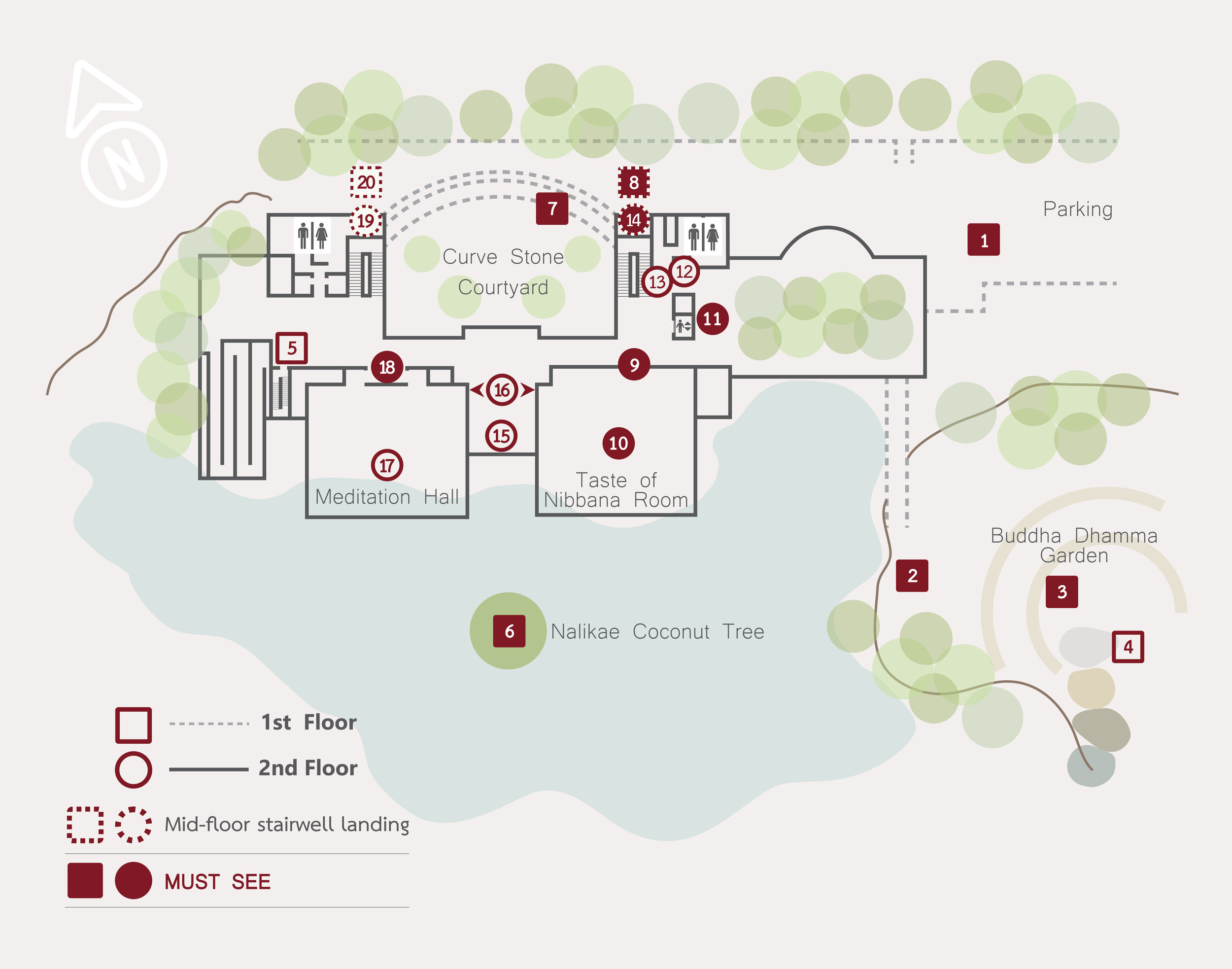Paticcasamuppada
A Riddle on Dependent Origination
The picture shows various portrayals of ignorance. A man with a fish coop catches a snake and mistakes it for a fish. Another man raises fighting cocks so that winning the fight would feed his sense of ‘I’, ‘me,’ and ‘mine.’ An ignorant man worships fire. All are slaves to the three unwholesome causes of suffering, namely attachment, aversion, and ignorance. They are lost and engulfed in this vicious cycle, as if about to drown in a dangerous whirlpool.
Living in ignorance is like being bitten by a dog, with a lion waiting to attack. One fails to see the world the way it truly is when one is foolishly seduced by satisfaction or dissatisfaction with the six sense objects: sight, sound, smell, taste, touch, and mind-objects.
As a result, one is trapped in the endless cycle of birth, aging, sickness, and death, like a bird flying in the sky without seeing the sky, a fish unaware of the water, a maggot not seeing the dung that it is feeding on, or an earthworm not seeing the earth. Such ignorance is in people who never realize that there is suffering and a way to end suffering.
The three ponds represent the three types of craving: craving for sensuality, or wanting the things that one likes; craving for existence, or wanting to be what one wants to be; and craving for self-annihilation, or not wanting to become what one does not like. A thirsty elephant drinks from the three ponds, illustrating how all ignorant beings constantly struggle to satisfy the three kinds of craving with the appetite of a large elephant. The elephant is then eaten by the frog; the frog is eaten by the snake; and the snake is eaten by the bird. These pictures symbolize the links of complex causes and conditions which eventually lead to suffering, namely contact giving rise to feeling, feeling giving rise to craving, craving giving rise to clinging, and clinging leading to the process of becoming.
The bird clutching the reed represents the process of becoming, which leads to the birth of the physical and mental aggregates of life. The hollow reed symbolizes the ever-changing body, which should not be clung to. The body is but an impermanent perch for the mind, which is made up of defilements, craving, and clinging. Just as the reed is being attacked by the four rats of birth, aging, sickness, and death; the body is bound to perish.
Symbolizing ignorance, a demon appears at the top of the picture. The only way to conquer it is to use wisdom, personified here by a courageous deva, or celestial being, with a sword and discus in his hands. He steps on the shoulders of the demon to cut off its head, putting an end to ignorance.
This illustration of Dependent Origination, or Paticcasamuppada in Pali, is part of an ancient Thai book called Kayanagara. Buddhadasa Bhikkhu discovered the ancient book, which dated more than a hundred years back, in a monastery in Chaiya, Southern Thailand. There were only pictures with no descriptions in it. He then added explanations to the images, compiled them into a picture book and published it for public study and reference.
Note: The above text is from Kayanagara Dhamma Riddles Picture Book by Buddhadasa Bhikkhu, which includes the illustration taken from an ancient Thai book found in Chaiya, Surat Thani province.



